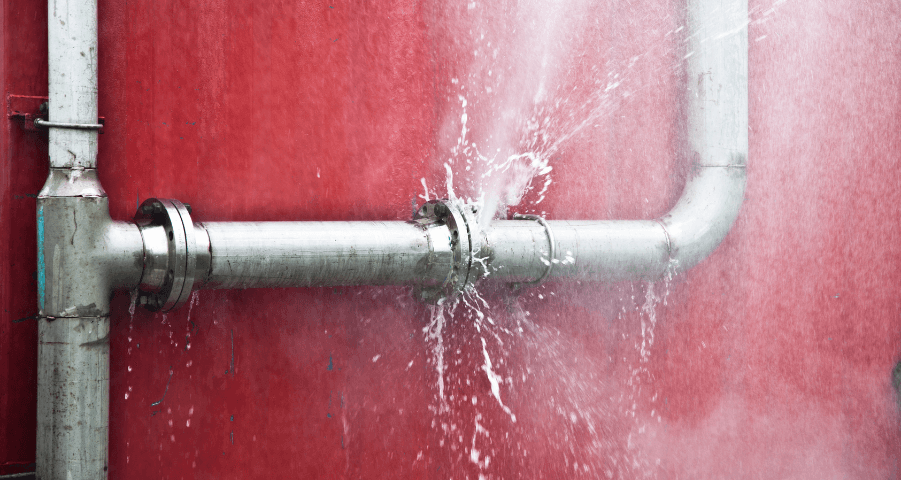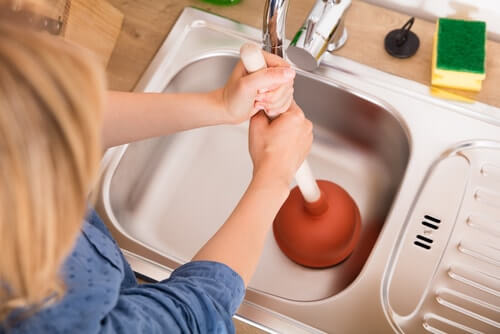Quick Solutions for Emergencies: Actions to Take Until Help Arrives
Quick Solutions for Emergencies: Actions to Take Until Help Arrives
Blog Article
Listed here further down you will discover a bunch of extremely good insight about What to Do While Waiting for an Emergency Plumber.

Pipes emergencies can strike any time, causing anxiety and potential damage to your home. Whether it's a ruptured pipe, a stopped up drainpipe, or a leaky faucet, recognizing just how to manage the circumstance till an expert plumbing gets here can save you from additional difficulties. This article offers crucial emergency plumbing ideas to aid you mitigate damage and gain back control throughout a plumbing crisis.
Shut off the Water
The first step in any plumbing emergency situation is to shut down the water supply. For localized problems, such as a dripping tap or commode, turn off the valve near the component. In the case of a major leak or burst pipeline, situate your home's major water shut-off shutoff and turn it off instantly. Understanding the place of these valves beforehand can save important time during an emergency situation.
Turn off Your Hot Water Heater
In particular emergency situations, such as a ruptured pipeline, it's wise to shut off your hot water heater. This stops overheating or damage to the device when water quits streaming. Turn off the power supply to the hot water heater (electrical or gas) and let it cool to prevent possible dangers.
Briefly Stop a Ruptured Pipe
A ruptured pipeline can result in significant water damages in minutes. To minimize the problem:
Call a professional plumber promptly to deal with the trouble permanently.
Have an Emergency Pipes Kit
Prepare a fundamental plumbing emergency situation kit to manage minor problems effectively. Your set should consist of:
Having these tools handy can make a significant distinction in your capacity to handle emergency situations.
Unclog Drains Securely.
A clogged drain can be an irritating and messy problem. Below's how to tackle it:.
If these approaches don't work, prevent making use of too much force, as it may aggravate the clog.
Take Care Of Overflowing Toilets.
An overflowing bathroom can cause instant turmoil. Below's what you need to do:.
Address Little Leaks with Short-term Solutions.
Tiny leakages can promptly become significant problems if left unchecked. Use these temporary fixes till specialist aid gets here:.
While these solutions aren't irreversible, they can help minimize water loss and damage.
Deal With Frozen Water Lines Meticulously.
In cooler climates, frozen pipes are a common emergency. If you think a frozen pipeline:.
Know When to Call a Professional.
While quick fixes can help temporarily, particular pipes concerns call for prompt specialist interest. Call a plumbing professional if:.
Without delay calling an expert guarantees the issue is resolved correctly and protects against additional problems.
Prevent More Damages.
Taking quick action to decrease damages can save you time and money in the future. Right here's how:.
Verdict.
Plumbing emergency situations can be overwhelming, yet with the best expertise and devices, you can manage the situation efficiently up until help gets here. By switching off the water system, dealing with little leaks, and utilizing short-lived repairs, you can decrease damage and maintain your home safe. Remember, these ideas are short-term solutions; constantly consult a qualified plumbing technician to handle the source of the trouble. Preparation and fast thinking are your ideal allies in any pipes emergency.
8 Helpful Tips for Managing Plumbing Emergencies at Home
If your plumbing system hasn’t failed once, wait for it because almost everyone has a story to tell. Sometimes, it could be simple emergencies such as a leaking pipe, a blocked cistern, or even a big burst pipe. In situations like this, you need to have some handy tips to save you some money and from possible damages.
Take care of minor issues early.
Sometimes, you could have avoided an emergency by taking proactive measures while it was still early. Some major plumbing emergencies can be a result of an ignored minor issue. We recommend that you have items like plumbing tapes and other related items. A plumbing tape can allow you to manage minor leaks before the plumber arrives.
Cut off the water supply.
This tip is essential in almost any type of leakage problem. For problems like minor leakages in the toilet or kitchen, turn off the supply that takes water to the affected pipes. If the leakage is a major pipe, you must shut off the supply valve to the entire building. This will help you avoid flooding your home and neighbors if you share a flat.
Know your plumbing system
Folks typically move into a new apartment without understanding the water supply around the building. This can prove disastrous if a water emergency arises and the plumber is far away. The previous tip will prove useless if you don’t practice this one. More importantly, know where your water shut-off valve is located – you’ll need that knowledge to prevent potential home floods.
Have some common handy tools
There are lots of plumbing emergencies that you can handle without hiring a plumber. That’s why you must keep some tools available always. Some tools that you can use to fix simple plumbing emergencies easily include plumbing tapes, screwdrivers, thread seal tapes, plungers, pliers, tape measures, and rubber gloves.
Insulate your pipes from cold
You’ll save yourself from many plumbing expenses if you protect your water pipes from the cold. This is because of the harmful effects that cold weather can have on your pipes. During winter, your pipes can burst from being overly expected to freezing temperatures. So, make sure insulators are there to keep the pipes working correctly.
Avoid practices that will clog your toilet.
Many people indulge in practices that can damage the plumbing system of the entire building. One of these is when they use their toilet to dispose-off garbage. They flush all kinds of things, such as paper towels, bandages, hairs, female sanitary products, etc., down the toilet. This will block your toilet in the long run, incurring unnecessary expenditures. Dump such waste in the trash instead.
Check your dials regularly.
Sometimes, there could be leakages in your home without noticing them in time. So, constantly monitor your water meter dial. If the dial is reading when there is nobody using water, this is an indicator that there is leaking. Check for leaks immediately. Call a plumber as soon as possible if you can’t find any.
https://www.constructionplacements.com/8-helpful-tips-for-managing-plumbing-emergencies-at-home/

We are very interested in Expert Tips for Managing a Plumbing Emergency Until Help Arrives and I'm hoping you enjoyed reading the entire blog entry. Feel free to pause to promote this blog if you liked it. Thanks so much for your time spent reading it.
Get An Estimate Report this page